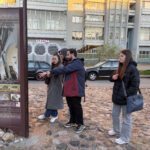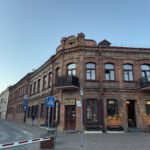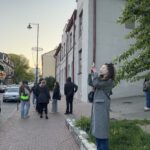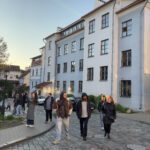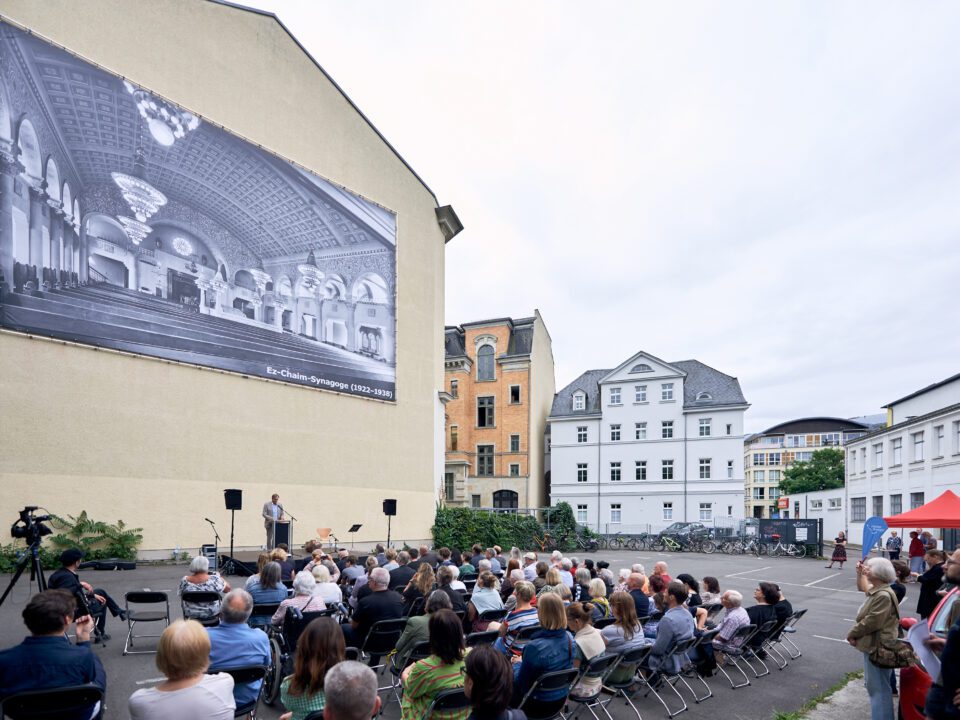Exploring Jewish heritage in Minsk: a test walk of the Next Routes demo

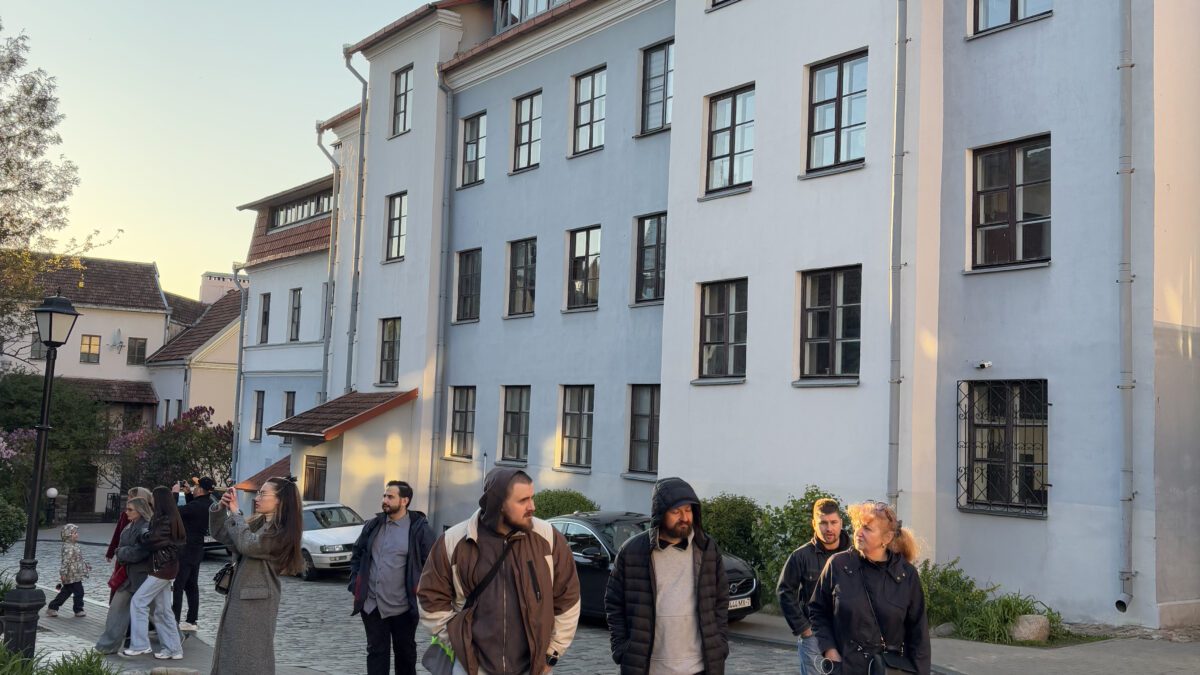
Young members of the Lech Lecha Jewish community in Minsk recently participated in a unique heritage walk aimed at testing the demo version of a mobile toolkit developed within the Next Routes Project. This initiative is part of a broader effort to make European history and heritage more accessible and engaging through interactive, tech-driven experiences, where AEPJ and The Together Plan joined efforts to later transfer the outputs of the project to the European Routes of Jewish Heritage members.
The tour started at the Daumana Street Synagogue, the only active Orthodox synagogue in Minsk and an important cultural and spiritual centre for the local Jewish community. From there, participants followed a carefully designed route through the city, uncovering the layered and often overlooked history of Jewish life in the Belarusian capital.
Unlike traditional tours, this walk was guided entirely through a game based on a digital support. Participants were prompted to photograph historical locations, answer reflective and factual questions, and mark their physical presence at key points using geolocation. The game emphasized active engagement and exploration, turning each mission into a small personal discovery.
The activity itself was immersive and deeply meaningful. It took the group through locations that once formed the heart of Jewish Minsk — from the sites of former synagogues and prayer houses to where Jewish schools, hospitals, and community centres once operated. They explored areas associated with the tragic history of the Minsk Ghetto, walking streets that witnessed both suffering and resistance. Many of the landmarks no longer visibly reflect their past, but through the rich content embedded in the toolkit — developed by The Together Plan as a partner of the AEPJ and contributor to the European Routes of Jewish Heritage — participants could vividly imagine the lives that once filled these spaces.
For the participants, it wasn’t just a walk — it was a journey into the heart of their city’s forgotten stories. The project reaffirmed how digital tools, when grounded in thoughtful research and community engagement, can play a transformative role in reconnecting younger generations with their heritage and identity.
This initiative was developed thanks to the Next Routes project, where six cultural routes certified by the Council of Europe join efforts to do meaningful steps on cultural routes gamification: the Phoenician’s Route, the Routes of the Olive Tree, Mozart Ways, ATRIUM. Architecture of Totalitarian Regimes in Europe’s Urban Memory, Iron Age in the Danube Route and the European Route of Jewish Heritage.
Please find further information about the Next Routes project in the project website.
